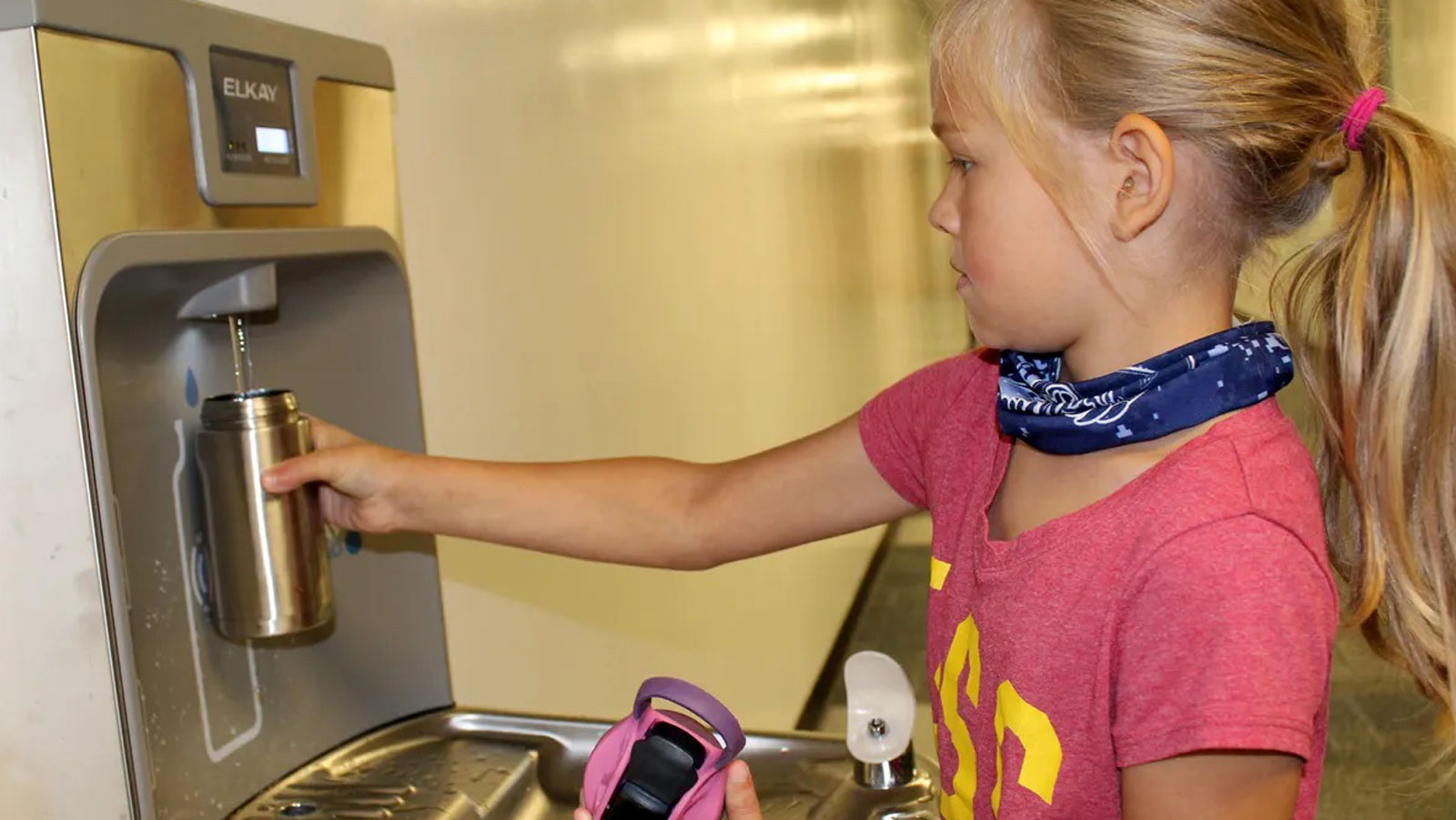
Maryland PIRG 2019 Legislative Scorecard
The Maryland Public Interest Research Group (Maryland PIRG), a non-profit, non-partisan advocate for the public interest, monitors the voting records of Maryland’s state legislators. Do your legislators support the public interest? Our 2019 State Legislative Scorecard reviews their votes on key public interest issues.
Downloads

The Maryland Public Interest Research Group (Maryland PIRG), a non-profit, non-partisan advocate for the public interest, monitors the voting records of Maryland’s state legislators. Do your legislators support the public interest? Our 2019 State Legislative Scorecard reviews their votes on key public interest issues, including those listed on our 2019 Legislative Agenda.
The bills selected for the Maryland PIRG legislative scorecard include some of the top issues we worked on this session including: public health, transportation, consumer protection, and democracy reforms.
Not sure who your State Senator and Delegates are? It’s easy to find out here.
You can find details for any bill by entering its number on the state website.
Scorecard Methodology
A 100 is the best possible score a lawmaker can receive on the scorecard; a 0 is the worst possible score. Scores are calculated by dividing number of votes with the public interest by total eligible votes.
In 2019 we scored 6 votes in the Senate and 8 in the House of Delegates. In 2019 all 8 bills we scored were bills we wanted to pass. A plus (+) indicates a vote for the public interest on the bill.
- A negative (–) indicates a vote against the public interest on the bill.
- (A) indicates an unexcused absence and is scored as a (–).
- Excused absences (E), are not counted towards score.
2019 Bills Scored
The Maryland Legislative session wrapped up in April, and Maryland PIRG was proud to be a part of important public interest victories.
- Updated Keep Antibiotics Effective Act (SB 471/HB652): Senators Pinsky and Nathan-Pulliam and Delegate Love. In order to protect public health from antibiotic resistance, this law bans the routine use of antibiotics on animals that are not sick and requires collection of data on antibiotics use on farms.
Maryland PIRG Testimony - Lead in School Drinking Water (SB481/HB1253): Senator McCray and Delegate Solomon. Gives schools access to grant programs to help remediate for lead in drinking water, and lays out intent for lowering the action level for lead in school drinking water.
Maryland PIRG Testimony - Election Day Voter Registration (SB449/HB286): Senator Pinsky and Delegate Reznik. Enables eligible voters to register to vote, update their registration, and vote on Election Day. An amendment to the Constitution of Maryland for Election Day Voter Registration was authorized by voters on the 2018 ballot.
Maryland PIRG Testimony - Foam Free MD (SB285/HB109): Senator Kagan and Delegate Lierman. Bans single use foam food packaging like cups, plates and clamshell containers in retail and from food service businesses.
Maryland PIRG Testimony - Student Loan Protections (SB670/HB594): Senate President and Speaker of the House by request of the Office of the Attorney General. Protects student borrowers from unfair, abusive, and deceptive trade practices by setting clear rules for student loan servicers.
- Zero-Emission School Buses (HB1255): Delegate Fraser-Hidalgo. Creates a grant program to help schools shift to electric buses. Burning fossil fuels like diesel puts the health of our children and communities at risk and contributes to global warming.
Maryland PIRG Testimony - Evaluation of Public Private Partnerships (P3s) (HB1091): Delegate Solomon. This bill would have ensured that we understand the environmental impacts and financial risks of large P3 highway expansion projects before entering into long-term contracts. This bill passed through the House but did not receive a vote in the Senate.
Maryland PIRG Testimony - Chlorpyrifos Ban (SB270/HB275): Senator Nathan-Pulliam and Delegate Stein. Would have banned the use of the toxic insecticide chlorpyrifos, and other insecticides containing chlorpyrifos. This bill passed through the House but did not receive a vote in the Senate.
Maryland PIRG Testimony
The fight isn’t over
In 2019 Bills, there were also a number of bills we supported that did not receive a vote.
Healthy Kids, Healthy Maryland
Companies are allowed to put nearly any chemical they want into the products we use every day, despite the fact that the government doesn’t test most chemicals for safety or require any pre-market approval. Maryland PIRG supports policies to reduce our exposure to chemicals linked to harmful health and environmental impacts.
FAMILY AND FIRE FIGHTER PROTECTION (SB902/HB1264)
Introduced by Senator Hayes and Delegate Cullison, this bill would have restricted toxic flame retardant chemicals from furniture and children’s products to protect families and fire fighters. These chemicals are not effective for fire safety and commonly used chemical flame retardants are linked to cancer, lower IQ and poor attention in children, hormone disruption, thyroid effects, and obesity. There are safer, more effective alternatives to these chemicals. The bill did not receive a vote in Committee. Our testimony.
BAN DEADLY PAINTSTRIPPERS (SB82/HB299)
Introduced by Senator Lam and Delegate Hill, this bill would have banned methylene chloride (DCM) and N-methylpyrrolidone (NMP) in paint and coating removal for commercial and consumer use. DCM and NMP are linked to negative health impacts and can cause immediate death, including 3 known deaths in Maryland. Safer alternatives are readily available. A severly weakened version of this bill passed through the Senate, but the bill was not voted on in the House. Our testimony.
DEMOCRACY FOR THE PEOPLE
The influence of wealthy special interests in elections has eroded public trust in our political system and helped depress civic participation. We should ensure all eligible voters are able to have their voice is heard on Election Day.
PROHIBITING CORPORATE CAMPAIGN CONTRIBUTIONS (HB1130)
Introduced by Delegate Ivey, this bill would have prohibited business entities from making contributions to candidates for office. The bill did not receive a hearing or vote in committee. Our testimony from 2018.
DON’T TRASH MARYLAND
Nothing we use for a few minutes should threaten our health and pollute our environment for hundreds of years. The waste we produce means more leaky landfills, dirty air from incinerators, and more litter and litter cleanup costs. Maryland PIRG supports policies that are dedicated to the principles of reduce, reuse, recycle and put us on a path to zero waste.
No Cash for Trash
Introduced by Senator Hough and Delegate Mosby (SB548/HB961), this bill would have removed subsidies for trash incineration as part of Maryland Renewable Portfolio Standard. The bills failed, and the House and Senate also voted to increase the subsidies as part of the Clean Energy Jobs Act (SB516).
SMART ENERGY SOLUTIONS
By making smart investments in energy efficiency and clean local sources of energy, we can lower bills, create local clean energy jobs, reduce our dependence on expensive and unsafe sources of energy, and improve the reliability of our electric grid.
No Subsidies for Nuclear Power
Introduced by Delegate Fisher, this bill was originally drafted to add nuclear power as a tier-1 renewable energy source in Maryland Renewable Portfolio Standard (RPS), but was amended to study doing so. The amended version of the bill did not pass on its own, but was added to the Clean Energy Jobs Act (SB516) as an amendment and passed. Read more.
TRANSIT NOT TRAFFIC
Our transportation system accounts for 36% of the greenhouse gas emissions in Maryland, more than any other source. Maryland has some of the worst traffic in the nation. Our roads, bridges and transit infrastructure are all lagging. If we want safe, modern and equitable transportation that meets our needs, we need to take action to invest in, reform, and modernize our transportation systems.
TRANSPORTATION & CLIMATE ACCOUNTABILITY ACT (SB788/HB695)
Introduced by Senator Rosapepe and Delegate Stewart, this bill would have required the Maryland Department of Environment to conduct thorough environmental reviews of major public-private partnership transportation projects. The review would measure the greenhouse gas emissions, air pollution, and stormwater impacts of such projects, and also evaluate impacts to vulnerable communities. This bill did not receive a vote in committee. Our testimony.
CONSUMER PROTECTION
Maryland should be able to participate in the marketplace without concern about hidden fees, scams, safety risks, or privacy violations. Massive data breaches at Equifax and Marriott underscored how vulnerable our data is to hackers, and the Cambridge Analytica debacle demonstrated that the collection and use of our personal data online can easily be misused.
ONLINE CONSUMER PROTECTION ACT (SB613/HB901)
Introduce by Senator Lee and Delegate Carey, this bill would have given consumers control over their own data to keep it secure from identity thieves. It gives people the right to control the sale and disclosures of their data, and allows them to request companies delete the information they have. The bill did not receive a vote in commitee.
Topics
Find Out More


The Threat of “Forever Chemicals”

Green schools guide

